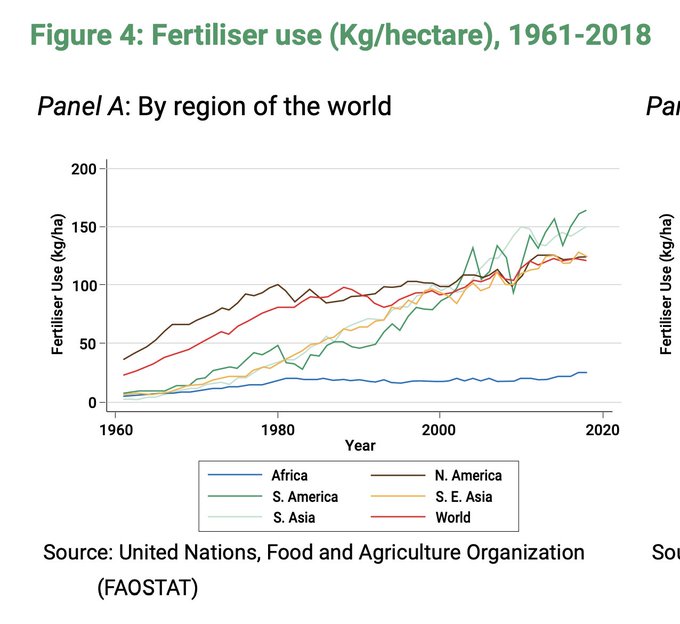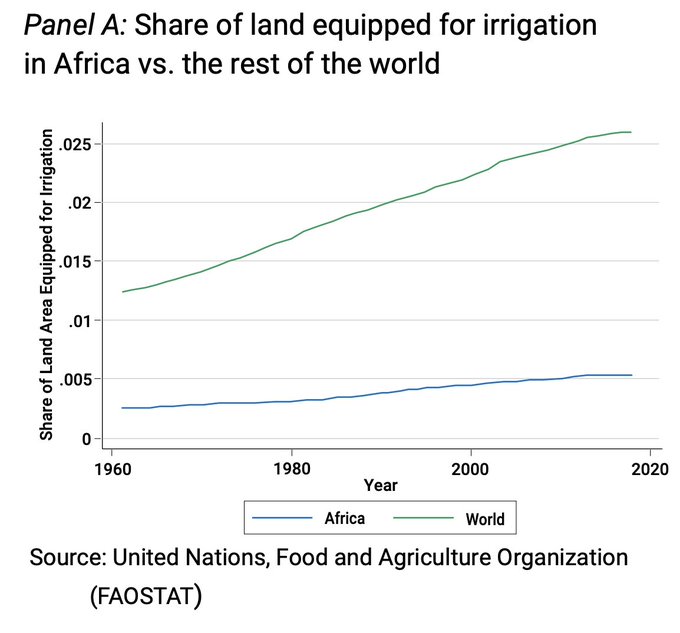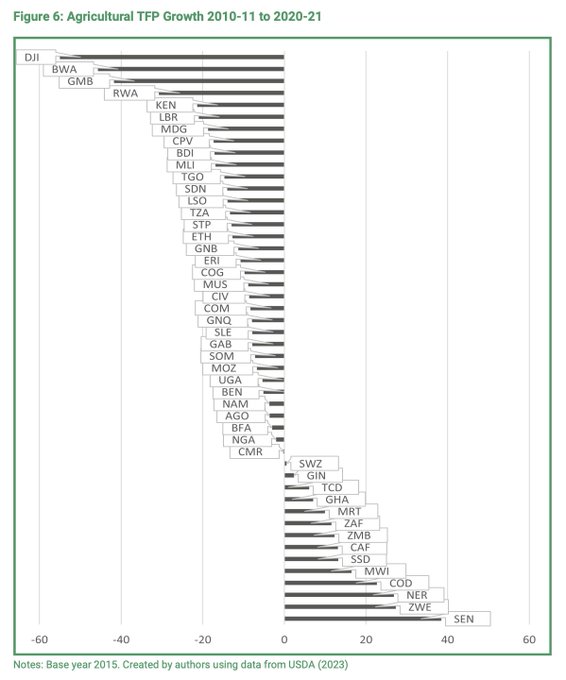@psohaistt
@tylercowen
Unfortunately no one easy answer. Proximate factors are low fertilizer use and low irrigation but there are complex institutional + political forces behind those.
3
4
41
Replies
This is a crazy chart—most African countries have registered **negative** agricultural TFP growth over the last decade.
(From new VoxDevLit article by Suri and Udry)
10
105
432
@oliverwkim
@psohaistt
@tylercowen
how would the *rise* in irrigation and fertiliser use being very slow or close close to 0 cause a *decline* in TFP?
1
1
5
@chaosbunt
@psohaistt
@tylercowen
Good Q. Two other things are moving: other inputs (mostly land + labor) and prices. Most of all, if input prices go up it eats into TFP.
1
1
9
@oliverwkim
@psohaistt
@tylercowen
fertilizer and irrigation cost money; lack of local industry to produce these things and so it's being shipped over along with cheap agri products?
0
0
1
@oliverwkim
@psohaistt
@tylercowen
I would say one factor is that "green" lobby has tried very hard to prevent green revolution to reach Africa.
Prime example, EU refused to fund fertilizer factories in Africa because "it is against its climate goals".
0
0
1







